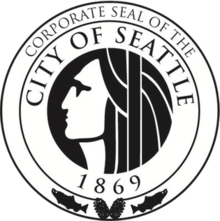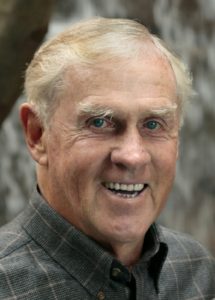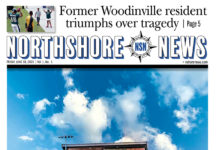By Bob McDonald
A Different Approach To Our Street-Related Homeless Crisis: Part II
 Part I outlined the reasons we should not confuse our street-related homeless crisis with income disparity or affordable housing. Pointing to the City of Seattle’s own surveys, we showed that it’s primarily the result of mental-health problems and drug addiction, exacerbated by the city’s lenient attitude towards homeless encampments, the use of drugs and the unwillingness to prosecute all but the most egregious crimes committed by the homeless population. This has led to an influx of homeless migrants looking for a No Rules drug-fueled environment, including some who have been responsible for offenses ranging from petty theft, to car break-ins, to shoplifting, to drug dealing, to murder and rape.
Part I outlined the reasons we should not confuse our street-related homeless crisis with income disparity or affordable housing. Pointing to the City of Seattle’s own surveys, we showed that it’s primarily the result of mental-health problems and drug addiction, exacerbated by the city’s lenient attitude towards homeless encampments, the use of drugs and the unwillingness to prosecute all but the most egregious crimes committed by the homeless population. This has led to an influx of homeless migrants looking for a No Rules drug-fueled environment, including some who have been responsible for offenses ranging from petty theft, to car break-ins, to shoplifting, to drug dealing, to murder and rape.
The solution requires the following changes in our mindset and approach:
Law enforcement and sentencing guidelines:
- Begin by enforcing the law, prosecuting accordingly and sending a message that we value accountability in Seattle.
- Increase mandatory sentences for anyone (including a homeless person) selling heroin meth or fentanyl) to a homeless person, forcefully investigate drug rungs selling to the homeless community and hand down mandatory sentences to get to the dealers.
- Increase maximum-sentencing guidelines on stolen property and on retailers buying stolen property from drug-addicted homeless persons.
Rights and Obligations:
- Individual rights assume obligations. We have a right to drive a car. However, we have an obligation to pass a driver’s test, maintain a valid driver’s license, secure insurance and use a seat belt, all for the protection of the individual and the public at large. In the same vein, a homeless person living on public streets, in encampments or in housing— at the expense of taxpayer and nonprofit funds—has obligations as well.
- We can’t rely on sample surveys, so each of the 6,320 homeless now living in these conditions would be obligated to register as homeless. They would be fingerprinted, facially identified and provided an identification card. They also would undergo a physical exam and intensive background and psychological interviews. Assuming a cost of $2,000 per person (a guestimate) the total would be $13 million. This is a small price to pay, considering the $1 billion+ per year currently being spent. We now would be able to answer voices on all sides of this issue, deal with the cause, not the symptom, and provide the help needed for this segment of the homeless population.
The need for direct humanitarian intervention:
- This process would require direct humanitarian intervention by the navigation team and law enforcement personnel. Many may refuse help, not because they do not want or need it, but because of a lack of trust or an inability to understand. Some “tough love” is needed in these cases. Even the city attorney is on record as saying this problem cannot be solved without direct intervention.
Actions taken, based on a data-driven registration process:
- Those identified as having recently come here because of our liberal policies, who have not held a job and prefer to live an autonomous unregulated life on the street would be given 48 hours to leave. They would be given bus fare to the city from which they came. The law enforcement agencies in that city and state would be notified.
- Those identified living on the street who refuse to register would be arrested and confined to an isolated cell for a period of 30 to 45 days (an appropriate detox period), during which time they would again be asked to register. If they still refused, they would remain in jail until they do so. The premise: We should be willing to use our tax dollars to help those who are willing to help themselves, but have no obligation to help those who are not.
- Those identified as suffering from drug and alcohol addiction and mental and physical disorders that require short, intermediate or long-term rehabilitation programs in a centralized setting, would be moved to that location, The location, services and other details offered in this centralized location will be the subject of the concluding Part III.
 Bob McDonald is a West Seattleite and resident of King County since 1981 As managing partner of Birtcher McDonald and Frank, he was responsible for the annexation, rezone, masterplan and development of the original 150-acre Microsoft campus in Redmond. In 1990, he launched his owned development company and has been involved in more than 20 value-added projects and one “ground up” master-planned high-tech office park since that time. He also has direct experience with homeless issues on properties he owns in Kelso, Everett and Longview.
Bob McDonald is a West Seattleite and resident of King County since 1981 As managing partner of Birtcher McDonald and Frank, he was responsible for the annexation, rezone, masterplan and development of the original 150-acre Microsoft campus in Redmond. In 1990, he launched his owned development company and has been involved in more than 20 value-added projects and one “ground up” master-planned high-tech office park since that time. He also has direct experience with homeless issues on properties he owns in Kelso, Everett and Longview.
P.S. Here are links to prior posts in the fantastical Action Central series: Mayor Durkan’s Address; Homeless Central, a First Step; background on Action (nee Homeless) Central director John Shannon; his distinction between Homelessness and Lawlessness, The Stakeholders; The Perfect Site! The ‘Jigsaw Puzzle’, Reaching For Reality, Town Hall Takeaways, Eric’s National Exposure, ‘Head Chef’. ‘Our Mission Control’, The No. 1 Deliverable—Synergy!, Proactive Vs. Passive, and Action Central: Guest Proposal-Part 1.
Below is Poll No. 2, with the same question as in Poll No. 1, but at a later stage of the discussion. Those who think Action Central is an Excellent/Much Needed Idea is now in the 80% range. If you haven’t voted in Poll No. 2, please do so below.
[polldaddy poll=10341497]
—Larry Coffman






